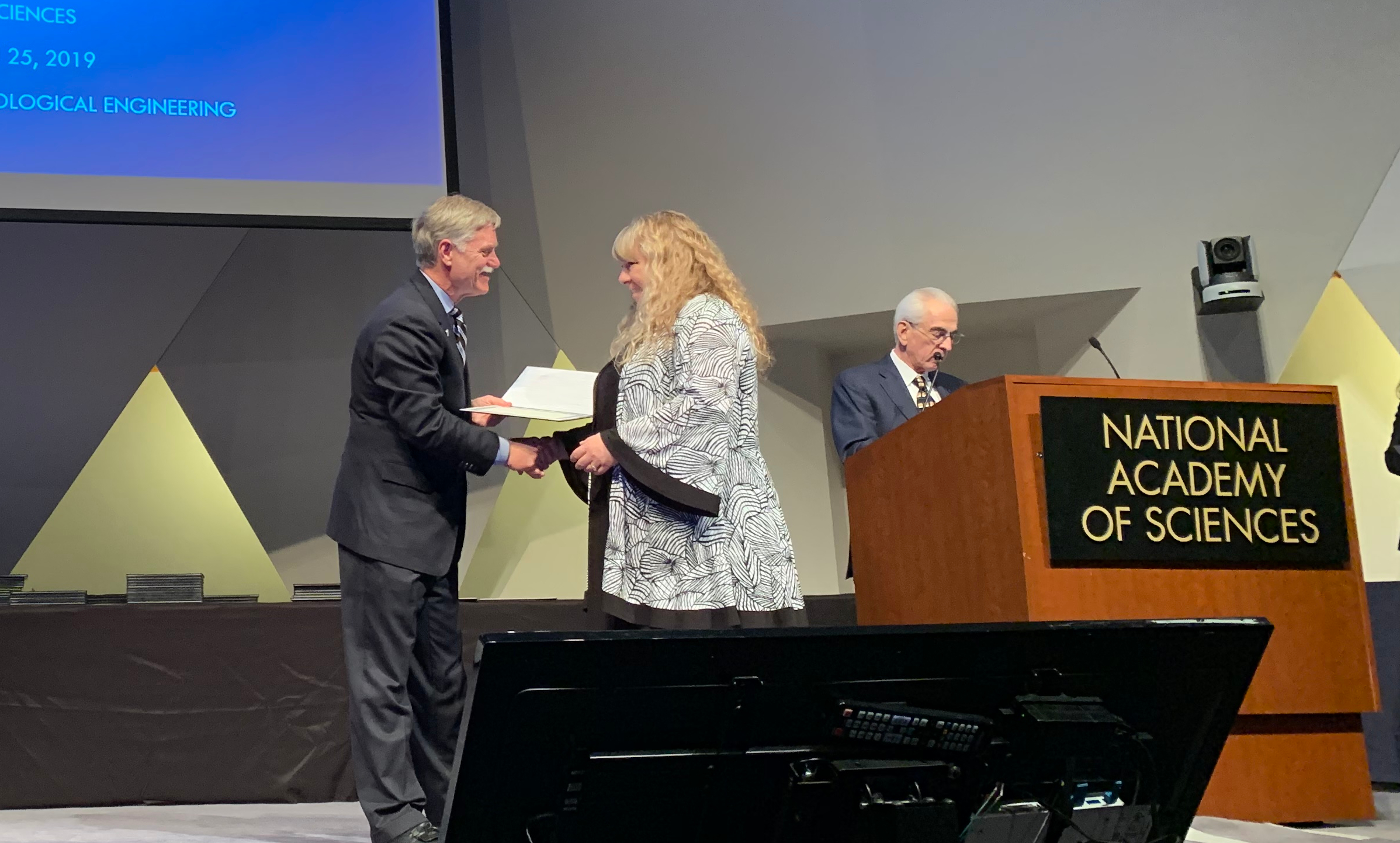
The American Institute for Medical and Biological Engineering has elected chemical engineering professor Janet Elliott as a Fellow of the institute.
Chemical engineering professor Janet Elliott has been elected a Fellow of the American Institute for Medical and Biological Engineering, a distinction reserved for the top two per cent of medical and biological engineers.
Elliott is a world leader in thermodynamics research and one of her focuses is on cryobiology and cryopreservation-the ability to store cells and tissues at low temperature to be later used for transplantation.
While memories of the March 25 AIMBE award presentation are fresh, the thing that still has Elliott buzzing with excitement is a recent research achievement that shatters a barrier preventing corneal tissues from being frozen indefinitely for transplant.
The challenge in preserving corneas for transplant is the safe freezing and thawing of monolayers of endothelial cells, which line the cornea. In fact, it is most often this part of the cornea that is diseased or damaged, causing the need for a transplant and it is becoming common to transplant only the endothelial layer. At present, donor corneas can only be preserved for 14 days.
Researchers have long struggled to understand the mechanisms that damage cryopreserved endothelial cell monolayers during the freezing and thawing-out process.
But Elliott and collaborator Dr. Locksley McGann from the U of A Department of Laboratory Medicine and Pathology together with their research associate Dr. Leah Marquez Curtis and graduate student Nasim Eskandari published a research paper in December, 2018, in which they share a protocol for freezing and thawing endothelial cells in monolayers.
"Many cells in suspension are easy to cryopreserve and recently we improved cryopreservation of endothelial cells in suspension. But in tissue structures they're really hard. You can't preserve corneas because of the endothelial monolayer," said Elliott, "and we just cryopreserved that."
The discovery means that in the near future cryopreserved vascular and corneal endothelial layers can be used for drug research and disease modelling and, in time, for longer-term storage and transplantation.
It's just the latest highlight in a decades-long series of collaborations. Elliott feels lucky to have worked with so many great colleagues and trainees over the years. Research in those projects solved major challenges in the preservation and storage of other cells and tissues.
Department of Biomedical Engineering professor Christian Beaulieu was also elected as a Fellow of the institute.
Elliott says she's humbled and proud to have received this recognition.
"It's good for Canadian researchers to have their accomplishments recognized internationally and for U of A researchers to have their work recognized internationally," she said. "The thing I'm happy about is that your reputation comes out of your research and the research is what I'm proud of."